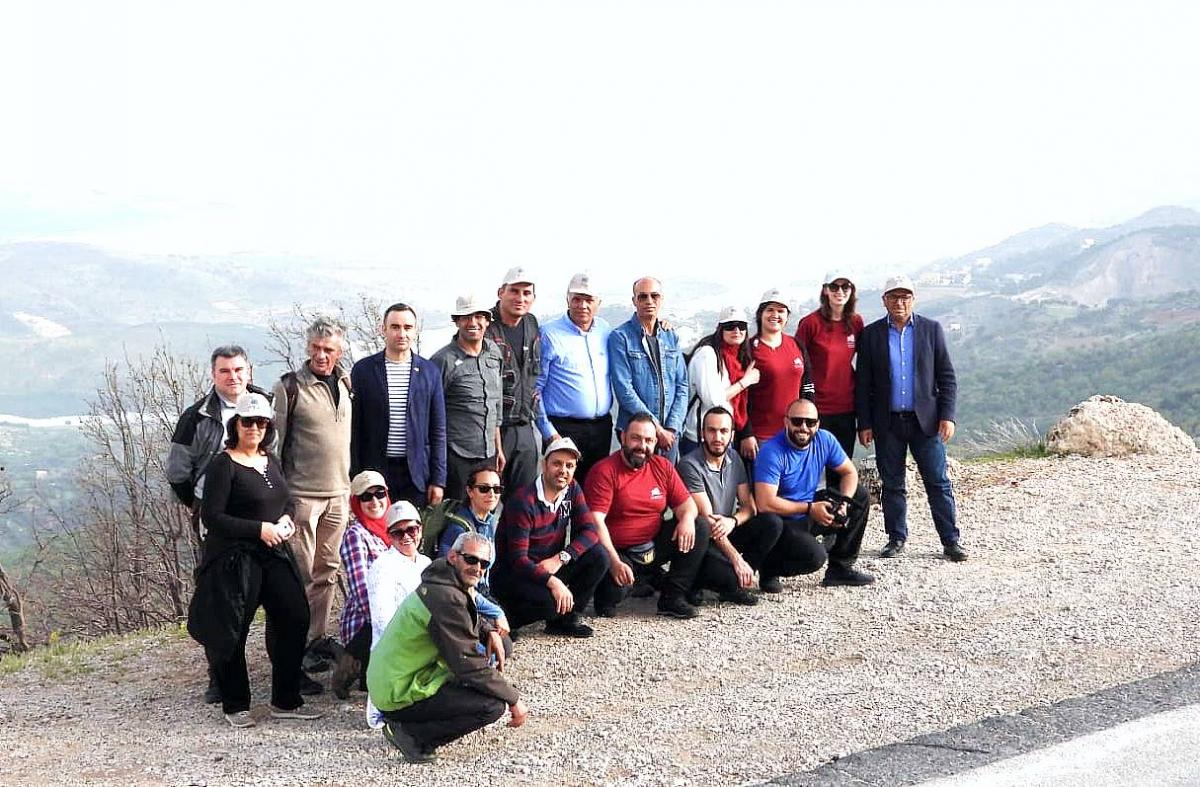Advancing the IUCN Green List to enhance management effectiveness and equitable governance of protected areas in the Maghreb Region
A capacity-building workshop was held in the Shouf Biosphere Reserve in Lebanon (Green Listed in 2018) for 7 Green List candidate site managers and representatives of protected areas administrations in the Maghreb countries of Algeria, Morocco and Tunisia. The workshop was organised by the IUCN Centre for Mediterranean Cooperation and the World Commission on Protected Areas in collaboration with the IUCN French Committee and Al Shouf Cedar Society.

Photo: Shouf Biosphere Reserve - Ramzi Breiq
The Green List of Protected and Conserved Areas can be used as an important tool to enhance the management effectiveness of protected areas. The external evaluation process can recognise effective management aspects, as well as highlight the major challenges and weaknesses that protected areas are facing. In addition, candidate sites can get technical support and advice from mentors and experts of the World Commission on Protected Areas on the best ways to address these challenges and enhance governance, effectiveness and equity aspects of the management, according to IUCN best practices.
The Green List process in the Maghreb has been particularly designed to strengthen capacity and enhance collaboration between candidate sites as well as other Green Listed sites in the region through the Francophone Green List network.
In this regard, a capacity building workshop was held from the 30th of April to the 2nd of May in the Shouf Biosphere Reserve in Lebanon (Green Listed in 2018) for the seven candidate sites managers and representatives of protected areas administrations in the Maghreb countries (Algeria, Morocco and Tunisia).
The workshop was organised by the IUCN Centre for Mediterranean Cooperation and the World Commission on Protected Areas in collaboration with the IUCN French Committee and Al Shouf Cedar Society.
This event enabled the Green List candidate sites managers and the heads of protected areas administrations in the three countries to better understand the Green List process and to start the self -evaluation exercise of their respective sites.
In addition, mentors from Green Listed Sites in France (Parc Marin de la Cote Bleue, Réserve national de chasse et de faune sauvage d’Orlu in the Pyrenees and from Reserve de chasse et de faune sauvage de Donzère-Mondragon in Rhône-Alpes – all Green List sites) and from Shouf Biosphere Reserve in Lebanon have also participated and shared their experiences and lessons learnt regarding the process as well as particular aspects related to protected areas management.
The self-assessment undertaken by the seven candidate sites against the seventeen criteria of the Green List highlighted common challenges shared by the sites, in particular with regard to co-management arrangements and stakeholder involvement, climate change, visitor management, and monitoring and evaluation.
Representatives of candidate sites have expressed their commitment in addressing these challenges and achieving the Green List Standard. Mentors have also committed to continue providing support throughout the process.
During the three days of the workshop, participants had the chance also to visit several parts of the Shouf Biosphere reserve and to talk with the staff and with the private project holders around the reserve.
The participants highlighted the importance of the Green List programme and this workshop in enhancing the management of protected areas in the Maghreb region. The hands-on and collaborative work between site managers and mentors has proven very effective. In addition, the participation of central protected areas agency staff was very valuable as it enabled a reflection on how to use the experience of the current candidate sites and Green List standard to improve management of the entire national system of protected areas.
The candidates sites so far for the Green List in the Maghreb are the following:
- In Algeria: National Park of Theniet El Had and the Marine Protected Area of Habibas Island
- In Morocco: Toubkal National Park and Ifrane National Park
- In Tunisia: Feija and Jbel Serj National Parks and Kuriate Island
For more information, please contact Maher Mahjoub, North Africa Programme Coordinator at IUCN-Med (maher.mahjoub@iucn.org) or Imen Meliane, Regional Vice Chair of the World Commission of Protected Areas for North Africa, Middle East and West Asia (imeliane@me.com)
